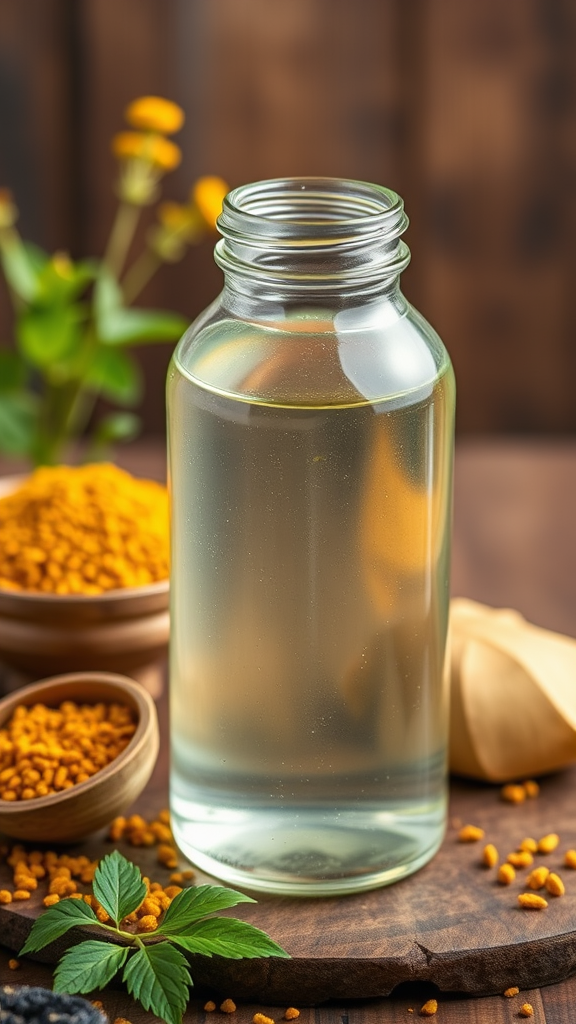20 Important Foods for a Kidney Health Diet
Maintaining kidney health is crucial for overall well-being, as kidneys play a vital role in filtering waste and excess fluids from the blood. A balanced diet is essential in supporting kidney function and preventing complications. In this article, we will explore 20 important foods that can aid in promoting kidney health and preventing kidney disease.
The kidneys are responsible for filtering waste products from the blood, regulating blood pressure, and balancing electrolytes. Maintaining a healthy diet can help reduce the risk of kidney disease and support optimal kidney function.
Maintaining kidney health is crucial, and diet plays a pivotal role in keeping these vital organs functioning efficiently. Here’s a detailed guide to some of the best foods you can incorporate into your daily routine for optimal kidney health.
Bulgur
- Bulgur – This whole grain wheat product is an excellent kidney-friendly alternative to grains high in potassium and phosphorus. It’s perfect for keeping your electrolyte levels in check. With its nutty flavor and versatile use in dishes like pilafs and salads, bulgur can be a staple in a renal diet.
Cauliflower
- Cauliflower – Low in sodium, potassium, and phosphorus, cauliflower is an ideal side dish for those managing kidney disease. Its rich supply of vitamins K, folate, and fiber makes it not only a nutritious choice but also a versatile one that can be mashed, grilled, or added to casseroles.
Blueberries
- Blueberries – Packed with antioxidants and low in sodium, phosphorus, and potassium, blueberries are a small but mighty fruit for kidney health. The anthocyanins in blueberries can help protect the kidneys from damage, and their natural sweetness makes them a delightful snack or breakfast addition.
Egg Whites
- Egg Whites – A top-notch source of kidney-friendly protein, egg whites are low in phosphorus and a better choice than whole eggs for those on a renal diet. Ideal for a protein-packed breakfast or a light snack, they can be scrambled, boiled, or whipped into a fluffy omelet.

Garlic
- Garlic – While enhancing the flavor of any dish, garlic provides anti-inflammatory benefits thanks to its sulfur compounds. It’s also rich in manganese and vitamin B6, making it not only a taste enhancer but also a health booster in any renal-friendly recipe.
Onions
- Onions – A sodium-free flavor enhancer, onions are essential for making renal diet dishes pop. Rich in vitamin C and B vitamins, onions can be caramelized, sautéed, or added raw to salads, bringing along digestive benefits when combined with garlic.
Arugula
- Arugula – This nutrient-dense green is a powerhouse of vitamins K, manganese, and calcium while being low in potassium. Arugula can add a peppery twist to a salad or side dish, making it a fantastic choice for anyone mindful of kidney health.
Macadamia Nuts
- Macadamia Nuts – These nuts offer a lower-phosphorus option with delightful healthy fats and minerals like calcium, magnesium, and iron. Perfect for a snack or a crunchy salad topping, macadamia nuts are a tasty way to support kidney health.
Radishes
- Radishes – Crunchy and vibrant, radishes are low in potassium and phosphorus but high in folate and vitamin C. Add them to salads for a zesty pop, or roast them for a unique and kidney-friendly side dish.
Turnips
- Turnips – High in fiber, vitamins C and B6, and manganese, turnips can be roasted, boiled, or mashed for a hearty, kidney-friendly side dish. Their slightly peppery flavor pairs well with a variety of dishes.
Pineapple
- Pineapple – Lower in phosphorus, potassium, and sodium than most fruits, pineapple is a tropical treat packed with fiber and vitamin C. Enjoy it fresh, juiced, or grilled for a refreshing twist on traditional desserts or summer dishes.
Shiitake Mushrooms
- Shiitake Mushrooms – A great plant-based meat alternative, shiitake mushrooms are low in potassium, sodium, and phosphorus. They’re a rich source of B vitamins, copper, and selenium, making them a nutrient-dense addition to soups or stir-fries.
Berries
- Berries – Fruits like strawberries, raspberries, and cherries are antioxidant-rich and kidney-friendly, high in fiber and vitamin C. These berries can brighten up your morning yogurt or cereals with vibrant colors and flavors.
Apples
- Apples – High in fiber and anti-inflammatory compounds, apples are a versatile fruit that can be eaten raw, baked, or turned into juice or cider. They’re a delicious and healthful option for keeping your kidneys in tip-top shape.
Fish (Salmon, Mackerel, Tuna)
- Fish (Salmon, Mackerel, Tuna) – Loaded with omega-3 fatty acids, these fish varieties can lower blood pressure and support heart health. They’re lean protein sources, making them an invaluable part of a balanced diet for kidney health.
Cabbage
- Cabbage – With a high vitamin B6, C, fiber, and folic acid content, cabbage is incredibly versatile. Whether raw or cooked, cabbage complements many dishes while being a boon for kidney health.
Lean Meats (Chicken, Turkey)
- Lean Meats (Chicken, Turkey) – With their high protein and low saturated fat content, lean meats are essential for a kidney-friendly diet. Whether roasted, grilled, or baked, they should be enjoyed in moderation to support overall well-being.
Legumes (Beans, Lentils, Chickpeas)
- Legumes (Beans, Lentils, Chickpeas) – As excellent sources of protein, fiber, and essential minerals, legumes are paramount in a balanced kidney-friendly diet. Whether added to soups, salads, or stews, they bring nutritional diversity and benefits.
Unsalted Nuts and Seeds (Almonds, Walnuts, Chia Seeds)
- Unsalted Nuts and Seeds (Almonds, Walnuts, Chia Seeds) – Rich in healthy fats, protein, and fiber, these nuts and seeds are heart-healthy and beneficial for overall well-being. Incorporate them into snacks, salads, or smoothies for a nutritious kick.
Incorporating these foods into your diet can help manage kidney health effectively while ensuring you get a wide variety of nutrients. Remember, a tailored approach considering individual health needs is always best, so consult with a healthcare provider for personalized advice.







